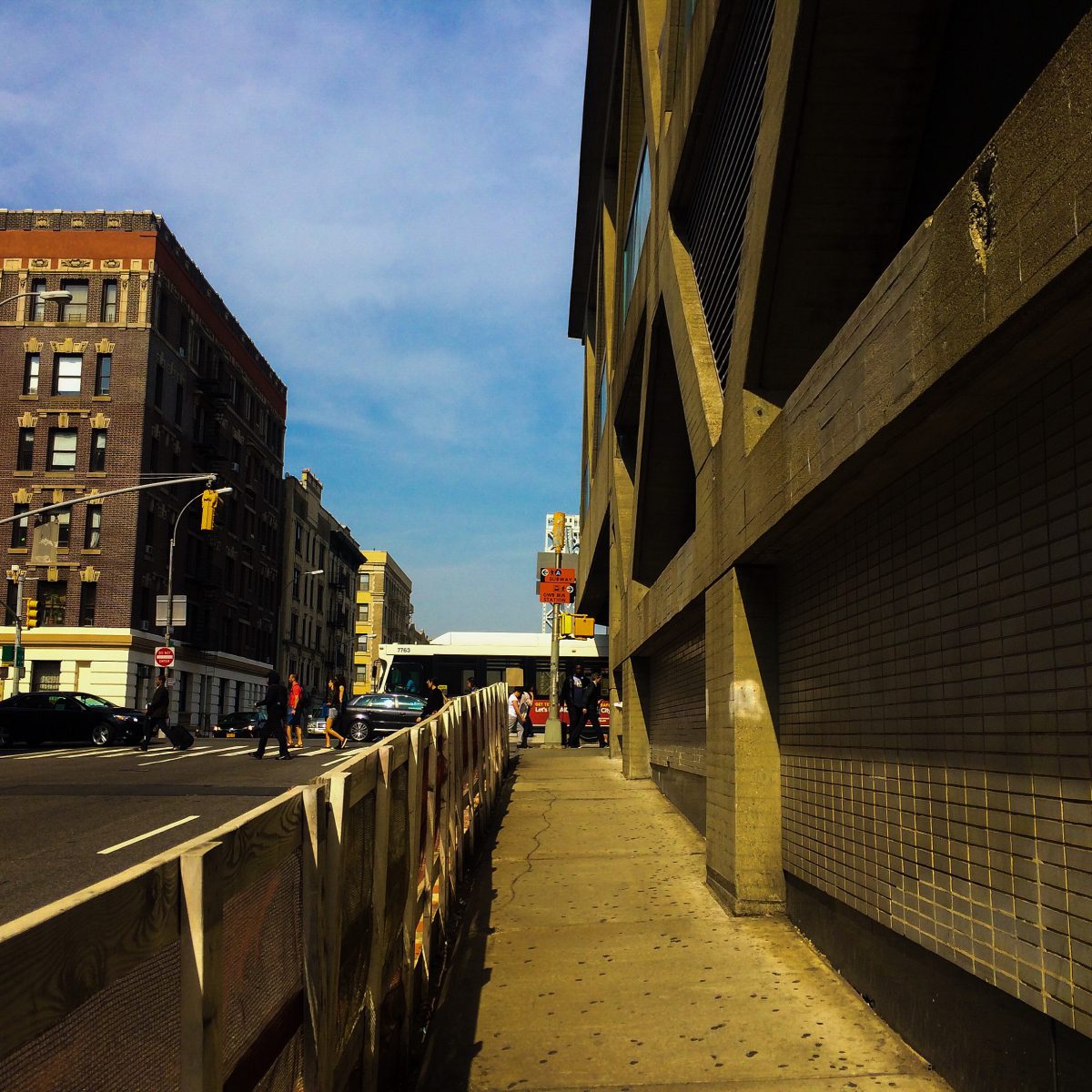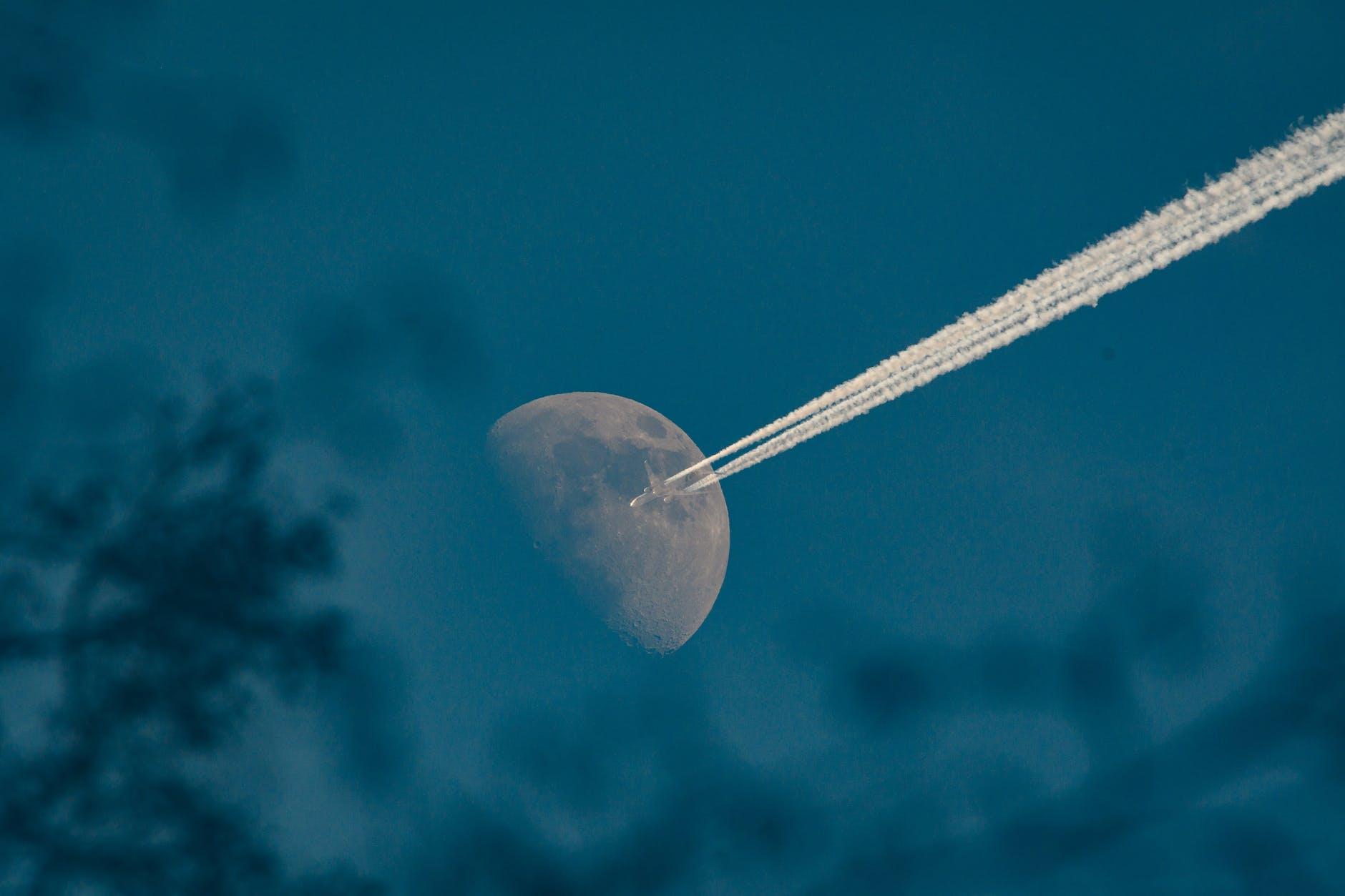The Fall
By Morgan Downie
Are you going to see the Jesus men? Even at this time of the day, who asked and to what purpose escapes me. Memory tricks. That’ll be the booze talking. As if I need to answer.
Jesus men. Rarer these days, like the belief has fallen away from them. Or is it that they have given up, gone to the easier streets of the internet, their faces lit up by a different passing traffic? Weaker, I think, if true.
Not so many religious types round the doors now anyway. Even the shiny faced Mormons are a rarity. And my door is long unvisited. Perhaps they find the marks of sledgehammers off-putting or maybe it’s just that my door exists, despite its location, on some evangelical blacklist. You know your bible son. Yes, yes I do. Knowledge hard won.
Better with what you know. Went to the city. Got stopped by one of those orange robed types. Educated like, but no sense. Weak. What was his chat? Something about a better way, enlightenment. Stuck the head in. Just hard enough to send him down. Call out Gouranga now, eh? Be happy. Are you? Not a squeak. Charges dropped.
My name? Michael. Everybody knows it. After the angel. Not so many know that. See there, Pat the post on the way up the street. Was a time the Coffins were the last houses before they’d be walking back down to the town. Now there’s new builds, incomers, pock marked all around us. But we, still on the hill, reminding them.
Anything for Lockhart? He shakes his head. Not today. Speaks, as he should, but not stopping for conversation. Not surprising. I still get a quickening of the heart, the sense of adrenalin, when I see a postman. I’ve heard it said that no-one sends letters anymore but I can’t see the truth of that. I want to take their bags, sit in a room with the curtains shut, all the mail around me. Peel open the sealed envelopes, see what they’re hiding inside. Not that I’d act on it. At least not today. And I’m not saying I won’t do it again. But it only ends one way. A nightmare of CS spray. One year bird. One year suspended. And nothing for the resisting arrest. Hard to uphold when they arrive in numbers.
Down and down to the Bay. Once I would have driven but now’s the time of your five a day and twenty minutes exercise. I see the sense of it. All changed. Back then they say you could leave the keys in your car and your front door unlocked. And then they say it was me and the likes of me that ended all of that. I do not believe this. I do not believe in such innocence. Only the lies that provide for its appearance.
And besides, I like to walk, to be seen. Michael Lockhart out from the Coffins like a scent of itself the Bay wants to forget. Social housing. Tenements. They all live on credit up there. This is what they say. This is what they believe when, in fact, the reverse is true. What are we to them? Strangers and sojourners all.
Down and down to the bay. Down the fish vennels, past the Star, where I am barred – affray, guilty – within sight of the Criterion, where I am not. And I have my own place, because we must always have a place, an uneasy truce, and mine is a seat at the window overlooking the harbour. A tinker’s pub. As if that word had meaning. And my spot, my chair, provided by Janice, the owner’s wife, absentee landlord.
Janice with the teeth. And I fixed that. Two years. Aggravated assault. Reduced pending background reports. Spousal abuse. Premeditation not proven. Witnesses absent. He used to heat coins on the stove. Burnt her with them. Everybody knew. Didn’t serve me was enough. And her grateful, tearstained, like flowers in rain, soft bodied, pale, smelt like curdled milk. Michael, Michael. My name whispered in blood. Sometimes you just have to.
And out through the window down to the sea. No work on the boats now for the likes of him. Rum and coke? Too early and business to do. As if I would ever have gone to sea. It’s not so easy to love something that doesn’t love you back but it can be done. At a distance. Without the need for touch, the landsman’s giddiness at the prospect of a lurching deck. I carry a flask in my pocket, wet my lips gentle like, to remind myself of the call of the sea, pitched in from an upturned boat, the clear air becomes choking, unbreathable. He’ll not cross a bridge nor take a ferry. Neither of which is true but nor are they acts to be taken lightly.
The flask? No. Saw it in the dead Morrison’s window. I was never a thief. At least for the most part. Waited for a tourist to buy it. Did him on the wharf path. Oh I was searched. And again. But no evidence. Worth it. The things you have possession of are only worth something if they have a story attached. That’s a thing that can’t be bought. You can’t keep it away in any bank.
They dragged me from the water like a kitten. Me just a boy yet to grow into myself. Came out on a tender. Theft of a boat. Social work reports. But that was later. And still before who I would become. It was a proper beating. Down by the boat sheds where the supermarket is now. Me coughing up sea water, them throwing me back and forth like a broken creel. Never said a word in the hospital. Tripped.
Never again. But not before the no, no Michael. Remembered me then. Glassed his face so he could smile twice, a double favour. Lucky not to lose an eye. Though not my plan. Parity. One still in the Bay, the other packed up and left. Still make him cross the street when I see him. Not for badness. Just a laugh.
Down and down to the Bay. Down to what, in Victorian times, might have been called the Promenade for those quick months of passing summer. The Harbour Road for the rest of us. You can see the pictures down at the Trust. Come out on the train to take the waters. Always a sharp intake of breath when I go in there. Morning ladies. He’d be better off looking at his own history rather than other folks’.
I see my face reflected in the glass cases, the leather of horse tack, and copper sheen of fire dogs. I emerge from the willow pattern of a chamber pot. Here I am at the station, the steam age, laden with suitcases, walking behind. Fish baskets on my back at the harbour. The early days at the Works. Me in blackface, stoking coal at the furnace. Burdened. I am always in these pictures. Behind the poses. At the edges. A blur.
Up ahead I can see them, black as cormorants. Not a bad spot but not the best. The finding of these places requires a familiarity, a knowledge of echo and resonance. The sound washes up against the red sandstone of the restaurant that was once a bank. Afternoon service. They’ll be moved. I can’t quite hear where he is. Sounds like Matthew. Starting easy.
Closer now, looking without looking. The long coats that were used to be called Crombies. I had one once. Mutton dressed as lamb. Wolf in sheep’s clothing. Black tie, white shirt, Sunday clothes from the days of Sunday and working men. For those who like a sartorial flourish, the vanity of a scarf. And for what? It is cold that mortifies the flesh. And not forgetting the shoes. Spit and polish, bright as coffin lids, the whole street inverted should they look down, but these boys never look down. All dress code and attitude for a proper Jesus man. Head up, look straight ahead, the voice, the word, cast out upon us.
The boy. It’s always a boy, face pinched, the wind sucking the heat out of him, cheeks raw, hair damped, dark, parted rigid as a slide rule, but the eyes bright, lashes long as a girl. His clothes appear just too big, the collar too wide, the sleeves too long, not fitted, bought off the peg or sent in a brown paper parcel from an approved supplier, starched in the shape of the man he is expected to grow into. And him the very spit of his father. Not that I hear much of that now.
Up beside him. Walk around him first, daring him to blink, daring him to pause, make him look, make him see, as if I am a beast pacing in a cage. He does not pause, his voice does not waver. But he does not engage, not yet. Good boy. They need the call and response, not to answer a question, only the opportunity to slip into their well rehearsed speeches, drumming the ear of the listener. He is waiting, a challenge now, bit of spirit in him, as it should be. But still a boy. And breakable.
And behind him the other. Oh I see you, don’t think I don’t. What is it you think you have? The importance that comes with stillness? I’ve seen you in a thousand security guards. Empty men dreaming of insignia. Or maybe, if they just couldn’t give up the lure of the uniform, hotel, front of house. Parade ground polite. Firm but gentle you might say when you talk of the female staff. But they send you into a spiral of confusion with their behaviour. The tears. Back to the quarter bottle you keep hidden in a drawer. It is the company of men you need.
Want the boy to grow into the man you could have been. But yours are old clothes, looking like they’ve been slept in, laundered, ironed, creases sharp. Hands folded in front of you, thick-fingered, worker’s hands, first finger and thumb yellow as a widow woman’s teeth. Keeping them crossed in front of each other just so, like you think I won’t be able to see the swallow there, the prison-inked blue calling out to have a conversation. What jail? What wing? Prison’s like a holiday camp for him. But the stink of it gets into the skin, can’t be got rid of, wants its release like everyone else.
And then the face. You can tell what he is just by looking at him. Dog-eared, broken-nosed. Maybe doesn’t know how to get out of a fight but knows how to lose one. Dry skinned, flecks collected at the neck, bulging from the collar of his shirt. Burst blood vessels leave his cheeks apple red. But rotten at the core. And the eyes, wasted blue in bloodshot and yellow. Eyes for the boy alone, lips moving at the passages he imagines he knows. Eyes for the boy. Not me. But he knows me. And I know you, you old bastard.
His father beat him in the street. For all the good it did. A poster for tonight’s ceilidh flutters in a shop window. The flinch of memory unfaded. Dragged me away from the dancing. No son of mine. Shaming me. That refrain. Over and over. Dragged me away by the hair. First time at the dancing for me. Curious to see what all the fuss was about. The shape of sin. Not what you could call a proper beating. Mooring rope in his fist. Me on my knees. No son of mine. The words breathed out in whisky. The lesser sin. Common assault. Two years. And the child to local authority care.
The old man in hospital. Wasted. Belly like a pregnant woman. Your father’s been aggressive to the staff again. Only ever owned three books, the Bible, the Pilgrim’s Progress and Moby Dick. Know them and you can speak to any man. At the last, all the words in his mouth jumbled into a stream of whores and queers and abomination. Knew the truth then. Knowledge hard won.
And then the Jesus men. Man and boy. I move forward. He blinks, sees me now. A stiffening of the shoulders, starting to square up. What does he want with the boy? What small terror does he imagine he holds in his hands? Spare the rod, spoil the child. I step in on him. He steps back on his right foot, imperceptible but there. He beat him in the street. I stare him down. There are no rulers here, of men or boys.
I take the flask from my pocket, don’t break my gaze as I unscrew the top, take a long swig, today’s good works, tidal sway rocking the ground beneath me. The boy is not speaking now, waiting for this moment to stop. I hold the flask out to the man. Go on, take a drink. He shakes his head. Go on, you know you want to. Christ, nodding to the boy, even he knows you want to.
No, no thanks. But still the need. Like a hunger. Can see it in him. Written large. Suit yourself. Flask back in my pocket. And then to the boy. Good lad. Heard you from way back. Heard better though. Been better.
Then away. Down and down to the Bay and the boy’s voice again behind me. This boy who saw four angels standing on four corners of the earth, holding the fair winds, that the wind should not blow on earth, nor on sea, nor on any tree. Something like that. Swallowed up by the waters.
–
![]()
–
Morgan Downie is a visual artist who also writes short stories and poetry. He is a keen collaborationist and cross disciplinary practitioner and this underpins many of the themes of translocation in his practice. His published work includes stone and sea and distances, a Romanian- English photopoetry collection.
–
Photo by: Gessy Alvarez




One response to “Stories No. 55 – Morgan Downie”